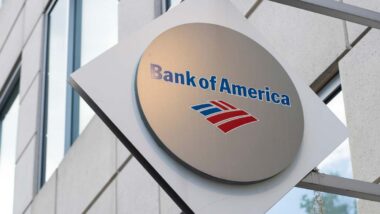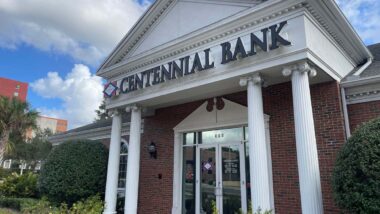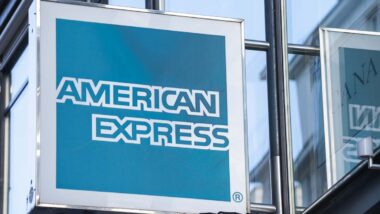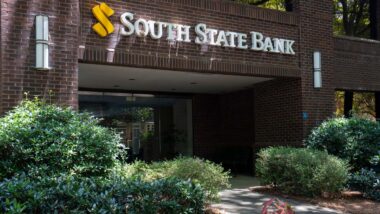Top Class Actions’s website and social media posts use affiliate links. If you make a purchase using such links, we may receive a commission, but it will not result in any additional charges to you. Please review our Affiliate Link Disclosure for more information.

Overdraft protection programs such as SEFCU overdraft protection are commonly offered by credit unions as a way for consumers to protect themselves from denied transactions. With these programs, transactions that would put a checking account into negative prompt the transfer of funds from a savings or credit account into the checking account, covering the transaction. This can be very convenient, but the process is almost always associated with an overdraft fee.
As mobile banking has become more popular, consumers are able to keep better tabs on their balances and therefore overdraft their accounts less frequently. In order to maintain their overdraft revenues, many banks and credit unions have raised their overdraft fees to around $35. These fees can quickly add up to over $100, especially if these institutions implement questionable practices when charges overdraft fees. Consumers who overdraft their accounts are often in a precarious financial situation which is only exacerbated by excessive overdraft fees.
Consumers are concerned that SEFCU overdraft protection and other programs are rigged against consumers in order to maximize overdraft fees. Unfair practices alleged by consumers may include charging overdraft fees to consumers who weren’t aware they had opted into an overdraft protection program. As of August 2010, banks and credit unions are prohibited from charging overdraft fees unless consumers have already consented and affirmatively opted into an overdraft protection program.
Institutions may also be conducting other controversial overdraft practices, including charging an overdraft fee based on available balance opposed to the actual balance. Because the available balance is usually lower than the actual balance on most accounts, using the available balance to calculate fees can result in more overdraft fees being charged.
Other potential violations of regulations include reordering transactions by amount in order to maximize overdraft fees and allowing consumers to repeatedly overdraft their account, resulting in several overdraft fees.
The repeated charging of overdraft fees achieved by deceptive practices can cause serious financial harm to consumers both in the short term and the long term.
The influx of consumer complaints has prompted the Consumer Financial Protection Bureau to investigate the overdraft fee practices across the banking industry. The findings of their investigation may result in new regulations, but these changes could be years down the road. Additionally, even if new regulations are instituted, they will only protect future consumers not the consumers who are currently suffering from unfair overdraft practices.
While the Consumer Financial Protection Bureau investigates overdraft fees, attorneys are doing the same. Legal experts are currently examining SEFCU overdraft protection along with programs at several institutions including Alliant Credit Union, Astoria Bank, Boeing Employees Credit Union (BECU), Educational Employees Credit Union (EECU) of California, Nationwide, State Employees Federal Credit Union (SEFCU) of New York, and Sterling Bank.
Deceptive overdraft programs such as SEFCU overdraft protection have already prompted numerous lawsuits. Litigation against offending institutions often accuses financial institutions of failing to disclose their fee structures, mismanagement of funds, and other deceptive practices.
You may have a legal claim if your were charged excessive overdraft fees by one of these banks or credit unions:
- Alliant Credit Union
- Astoria Bank
- BECU (Boeing Employees Credit Union)
- Nationwide
- Pacific Western
- Patelco Credit Union
- State Employees Federal Credit Union (SEFCU – New York)
- Sterling Bank
- Educational Employees Credit Union (California)
Fill out the form on this page now for a free, immediate, and confidential case evaluation.
ATTORNEY ADVERTISING
Top Class Actions is a Proud Member of the American Bar Association
LEGAL INFORMATION IS NOT LEGAL ADVICE
Top Class Actions Legal Statement
©2008 – 2024 Top Class Actions® LLC
Various Trademarks held by their respective owners
This website is not intended for viewing or usage by European Union citizens.
Get Help – It’s Free
Join a Free Bank Overdraft Fee Class Action Lawsuit Investigation
If your bank and credit union has engaged in deceptive overdraft fee practices, you may have a legal claim. Fill out the form on this page now to find out if you qualify!
An attorney will contact you if you qualify to discuss the details of your potential case.
PLEASE NOTE: If you want to participate in this investigation, it is imperative that you reply to the law firm if they call or email you. Failing to do so may result in you not getting signed up as a client or getting you dropped as a client.
In order to properly investigate overdraft fee claims, you may be required to disclose bank statements to overdraft fee attorneys. Please note that any such information will be kept private and confidential.












